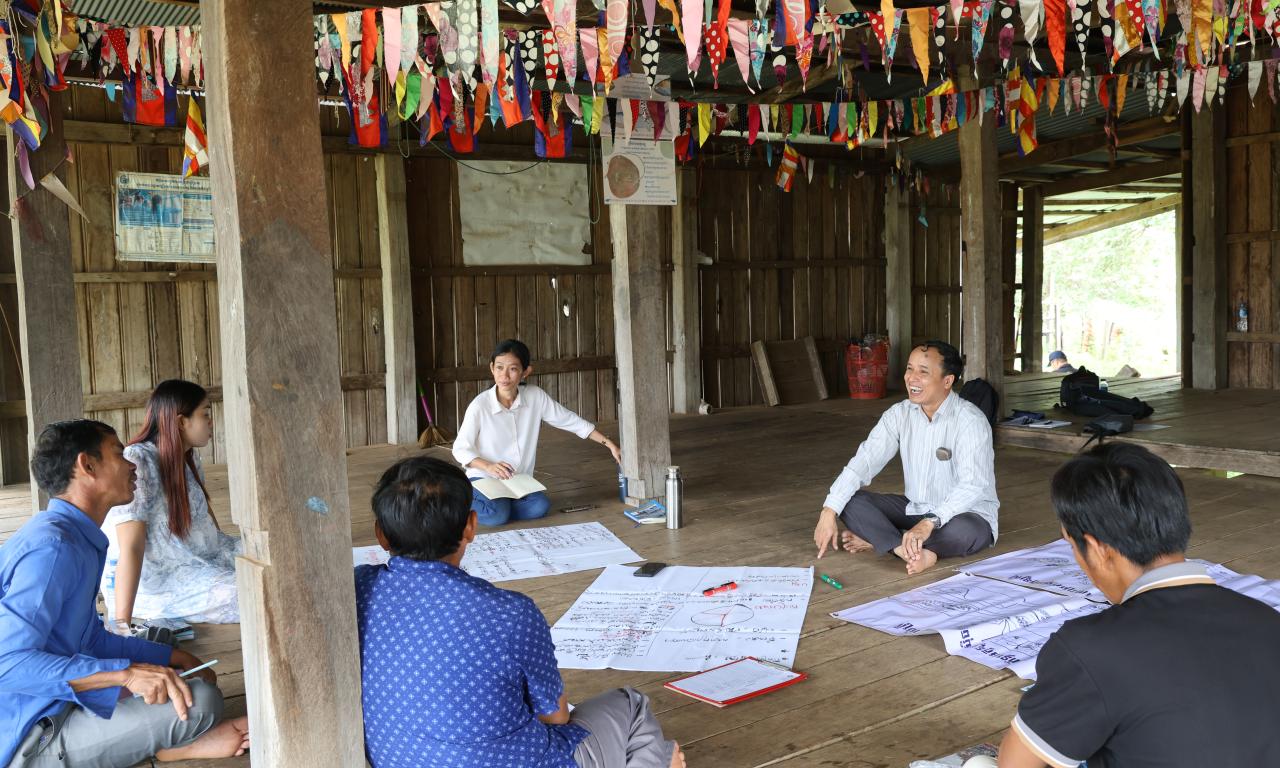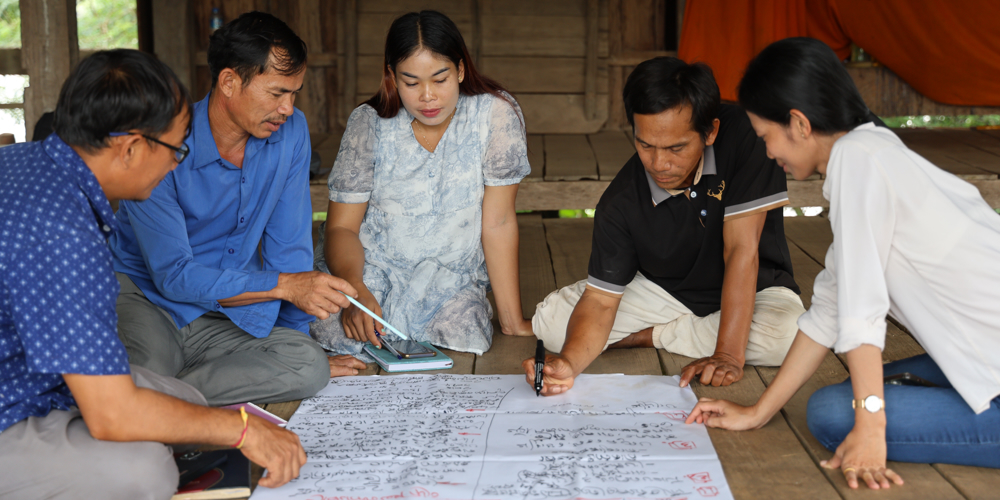
Community Fisheries (CFi) in the Mekong region face significant challenges due to low capacity, lack of resource persons in communities, local communication and language barriers, insufficient resource mobilization, and knowledge gaps between them and supporting agencies. The limited time available for CFi members to attend training sessions further complicates their ability to gain the right knowledge for effective fisheries management. Additionally, there is limited opportunity for knowledge sharing among the CFis themselves. To address this, a Learning Hub was established as a platform to use community’s comparative advantages, in terms of their skillsets and work progress on the ground, to share knowledge and demonstrate best practices within and between CFis.
The peer-to-peer learning approach was employed, where highly skilled CFi members shared their knowledge and practices with others through presentation and demonstration to strengthen their existing capacity.
Implementation
By engaging the Culture and Environment Preservation Association (CEPA) in establishing the Learning Hub, selected members of Thmey CFi engaged in knowledge sharing. They shared their knowledge on fish ecology, including fish lifecycle, feeding ecology, fish migration, reproduction, and population structure, with members of 12 of Cfis including Ksach Leav and Koh Khnier CFis in Kratie and within the province Koh Sneng, , Srekra Sang, Koh Kroch.
Challenges and Adaptations
An example for how the CFi addressed their challenges with knowledge gained from the approach was seen with Ksach Leav and Koh Khnier CFi. The CFi had a strong willingness to protect their fisheries and initially designated all their fishing grounds as no-take fish conservation zones. However, this led to unintended consequences, as local fishers, having no access to fishing grounds, resorted to illegal fishing activities within the conservation zones.
Through the peer-to-peer learning facilitated by the LH, the two CFis gained a deeper understanding of fish ecology concepts. This knowledge enabled them to redesign their conservation areas by prioritizing key habitats with high conservation value. Consequently, they reduced the conservation zone to only 35% of its original size. This adjustment allowed them to maintain their conservation objectives while also providing local fishers with access to fishing grounds, thereby supporting their subsistence livelihoods.

Lesson learned
The introduction of the Learning Hub by WorldFish, in collaboration with CEPA, proved to be a successful intervention. It not only enhanced the knowledge and capacity of the CFis but also fostered a more sustainable and balanced approach to fisheries management. This case study highlights the potential of peer-to-peer learning in addressing capacity and knowledge-sharing challenges in community-based resource management.
The Learning Hub effectively addresses challenges such as the lack of resource persons in communities, local communication and language barriers, and insufficient resource mobilization. It promotes collaboration among stakeholders, including government agencies, NGOs, and academic institutions, ensuring comprehensive and inclusive management plans. Additionally, it supports ongoing learning and adaptation, integrating new information and technologies to keep strategies effective.

